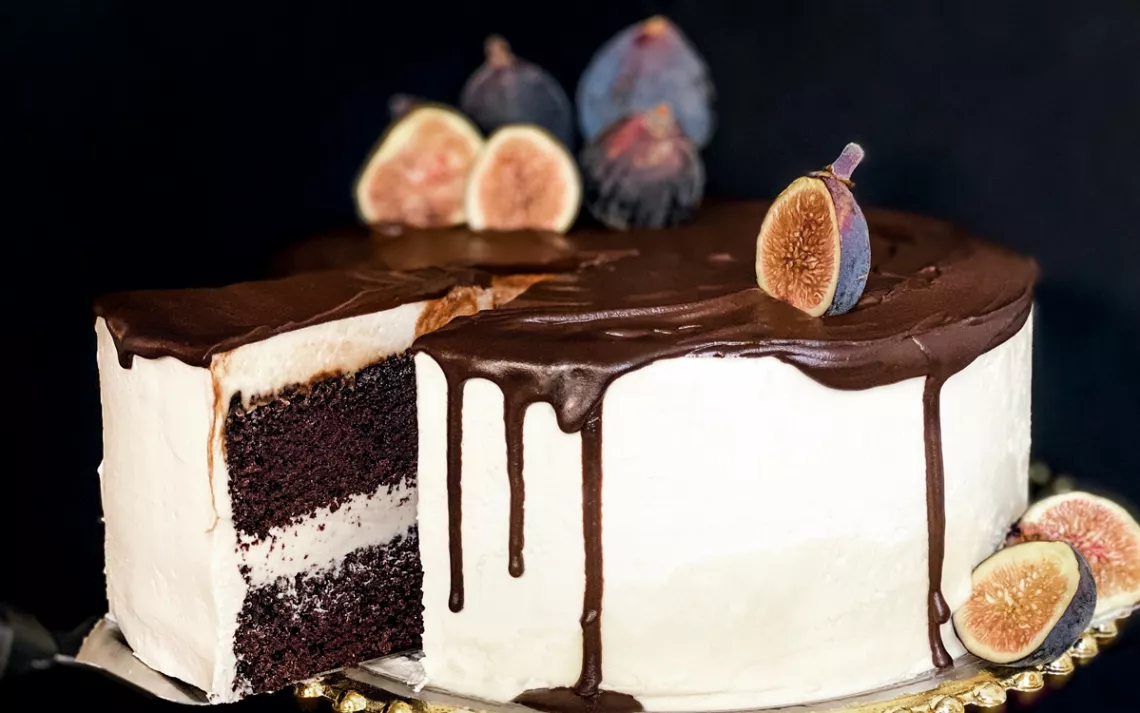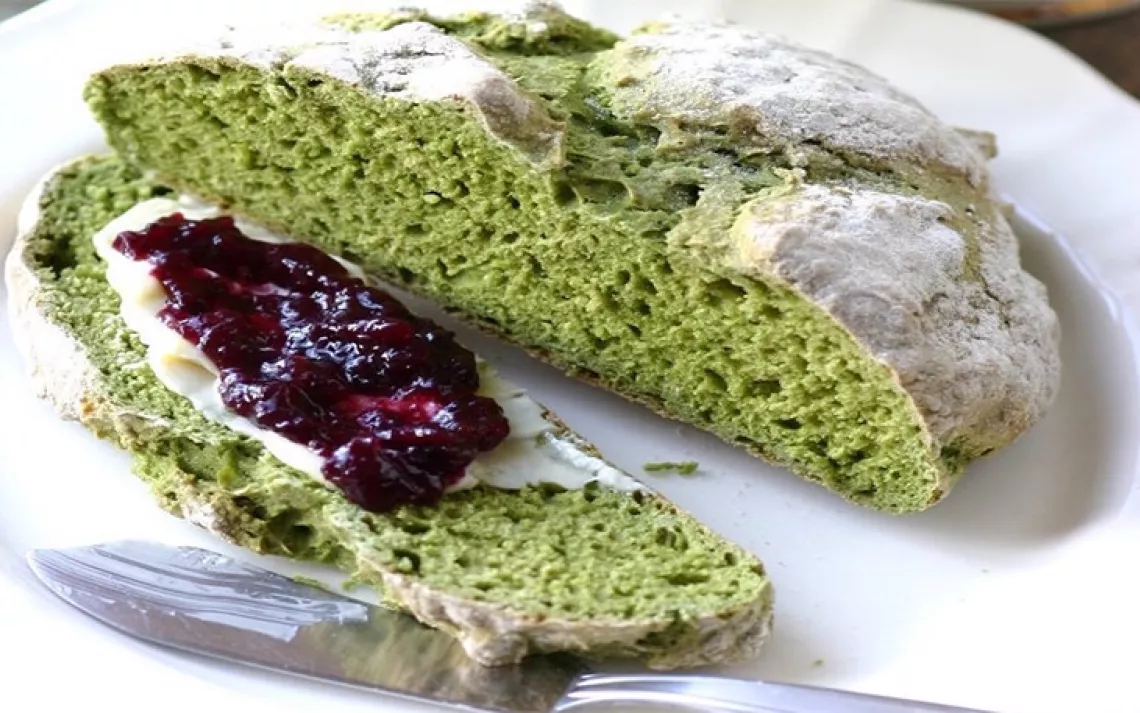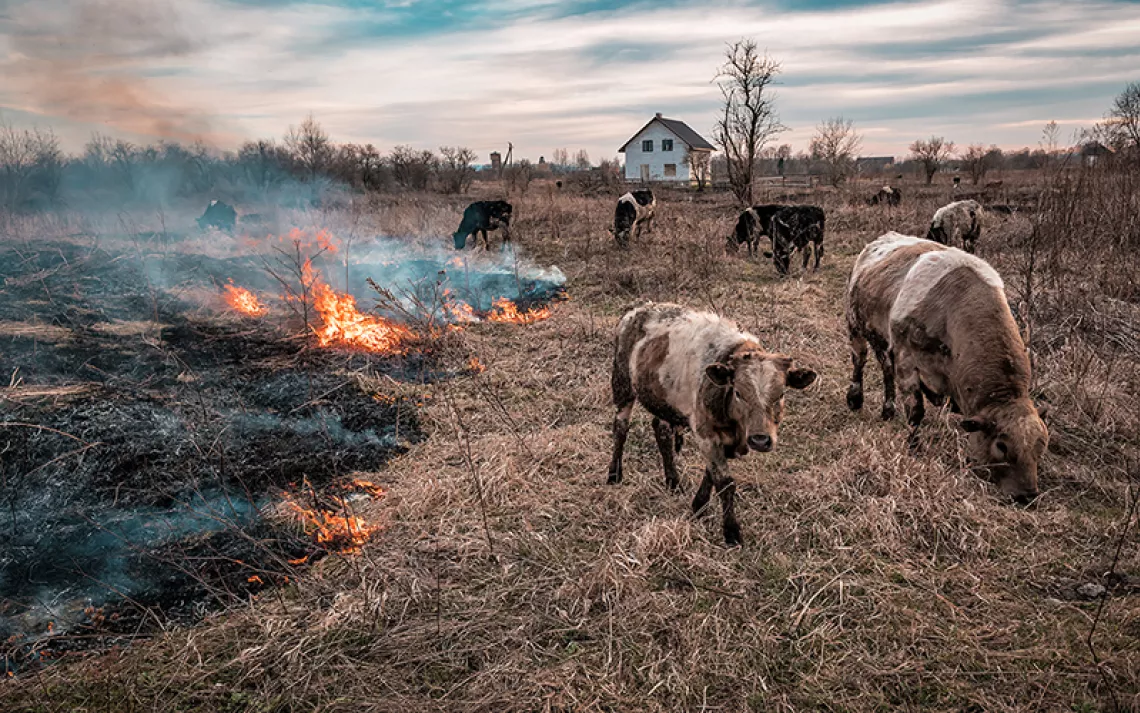Easy Vegan Baking Hacks to Shrink Your Sweet Tooth's Footprint
Adapt all your favorite recipes with a little substitution savvy

Illustration by Jenn Liv
Reducing the animal products in your diet is a surefire way to shrink your environmental footprint. But plant-based baking is intimidating, whether you're a longtime vegan or you're flirting with flexitarianism. In hopes of whipping up decadent treats this winter, we sought the substitution savvy of Meggan Leal, the creator of Cooking on Caffeine, a plant-based food blog. Her key tip for adapting your favorite recipe? Embrace the trial-and-error nature of food science. "Don't get discouraged if you don't nail that original taste right off the bat," Leal says. "One single ingredient usually does a lot of different things, so be prepared for some misses before you land on the perfect, delicious dessert."
Master the Basics of Plant-Based Swappage
Whole Eggs
"Eggs are used to lift, bind, and moisten, so you'll have to figure out your egg substitute's precise role," Leal says. You can create binding flax "eggs" by mixing 1 tablespoon of ground flaxseed with 2 1/2 tablespoons of water and letting that mixture sit for 10 minutes. Depending on a recipe's flavor profile, pureed avocado, squash, pumpkin, banana, zucchini, or sweet potato can do eggs' binding duties too.
Egg Whites
For moisture, and for a solid whipped-egg-white substitute (required in meringue and mousse recipes), try aquafaba, the liquid from cooked beans or other legumes. "I usually use garbanzo beans' aquafaba because it's pretty neutral-tasting," says Leal, who uses 3 tablespoons of it to replace an egg and 2 tablespoons to replace an egg white.
Leavening
For cake and bread recipes, eggs typically serve as a raising agent, so in place of each egg, Leal combines 1 tablespoon of vinegar (typically white distilled or apple cider) with 1 teaspoon of baking soda.
Butter and Cream
Solid coconut oil makes for a great one-for-one substitute for butter, and many vegans swap olive oil for butter in muffin and cookie recipes. Plus, Earth Balance, Country Crock, and Miyoko's make popular vegan butters. Leal, who prefers oil-based Country Crock Plant Butter (it comes in baking-friendly stick form), says to use the same amount of butter called for in traditional recipes. For baking, avocado can replace cream (but not whipped cream) and "pairs especially well with chocolate," Leal says.
Milk
Just about any plant-based milk on the market can be substituted for dairy milk. Leal prefers the consistency of soy milk and says that adding vinegar (1 teaspoon per cup) creates a great buttermilk substitution. She recommends oat milk as a replacement for whole milk.
Gelatin
Instead of baking with gelatin—which is made from boiled cow bones and used to create cake-decorating flourishes, no-bake desserts like cheesecake and flan, and, of course, Jell-O concoctions—Leal turns to agar powder (derived from red algae) and food-grade carrageenan (made from seaweed).
Sweeteners
Many food manufacturers rely on processed sweeteners to maintain flavor in vegan baked goods. Not Leal. She uses Zulka, a Mexican brand of sugars that are minimally processed, with no bone char or whitening agents. Looking to avoid cane sugar altogether? "Unprocessed coconut sugar goes great in cookies and pies, providing a nice, molasses-like taste," Leal says. To skip sugar completely, try powdered stevia mixed with maltodextrin, isomalt (diabetic-friendly and made from beets), or monk fruit, a zero-carb, natural sweetener.
Photo by Meggan Leal
Vegan Chocolate Cake

"This is adapted from a recipe my grandmother used during the Depression—or so I was told—when eggs and milk were scarce," Leal says. "It's rich and indulgent, and no one is ever the wiser that it's vegan."
3 1/2 cups all-purpose flour
2 cups sugar
2 teaspoons baking soda
1/2 cup cocoa powder
1 teaspoon salt
2 tablespoons vinegar
2 teaspoons vanilla extract
3/4 cup melted plant-based butter (oil-based, not water-based)
2 cups hot, strong coffee
In a large bowl, whisk together the flour, sugar, baking soda, cocoa powder, and salt. Make three large wells in the dry mixture. Pour vinegar into the first, vanilla into the second, and butter into the third. "Oil will give you a lighter, fluffier cake, but butter is better if you're going to be carving or stacking the cakes," Leal says. Pour the coffee over the whole mixture and stir well, until no dry bits remain. Pour the ingredients into oiled and parchment-paper-lined pans and bake at 325°F for 45 minutes, or until a toothpick comes out clean. Makes a quarter sheet (9" x 13"), two 8" round cakes, three 6" round cakes, or 24 to 30 cupcakes.
Buttercream Frosting
"In 10 minutes, you've got delicious, allergy-friendly, pipable frosting for all your cakes, macarons, cookies, cinnamon rolls, and other vegan confections," Leal says.
1 cup (two sticks) room-temperature high-fat vegan butter
4 cups powdered sugar
2 tablespoons liquid (coffee concentrate, fruit juice, pastes made from matcha tea or cocoa powder)
1 teaspoon vanilla extract
Mix the butter and half the powdered sugar on low until they're completely incorporated. Add the rest of the powdered sugar, and mix again. Add the liquid and the vanilla extract. Mix on low, using a spatula to scrape the bowl, until the mixture is smoothly integrated. Adjust the consistency by adding more liquid by the teaspoon to thin the mixture or powdered sugar by the quarter cup to stiffen it.
This article appeared in the January/February 2020 edition with the headline "Substitute Teachings."
 The Magazine of The Sierra Club
The Magazine of The Sierra Club







